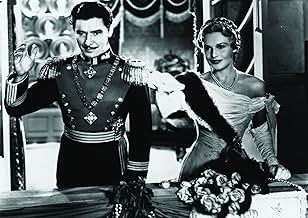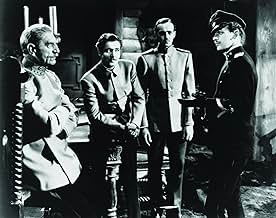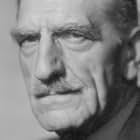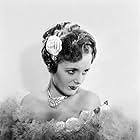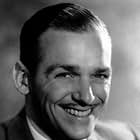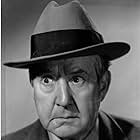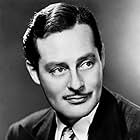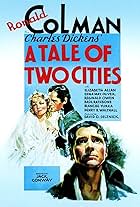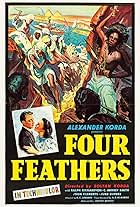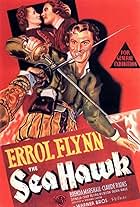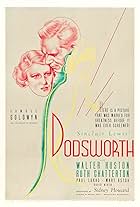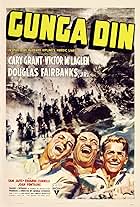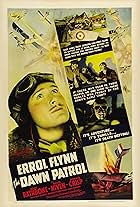IMDb RATING
7.6/10
5.1K
YOUR RATING
An Englishman on a Ruritarian holiday must impersonate the king when the rightful monarch, a distant cousin, is drugged and kidnapped.An Englishman on a Ruritarian holiday must impersonate the king when the rightful monarch, a distant cousin, is drugged and kidnapped.An Englishman on a Ruritarian holiday must impersonate the king when the rightful monarch, a distant cousin, is drugged and kidnapped.
- Nominated for 2 Oscars
- 1 win & 3 nominations total
Evelyn Beresford
- Lady Topham
- (uncredited)
Ricardo Lord Cezon
- Little Boy
- (uncredited)
Spencer Charters
- Railroad Porter
- (uncredited)
D'Arcy Corrigan
- Traveler
- (uncredited)
Alexander D'Arcy
- De Gautet
- (uncredited)
Ralph Faulkner
- Bersonin
- (uncredited)
Storyline
Did you know
- TriviaDouglas Fairbanks Jr. initially wanted the double role for himself and actually tested for it. He was devastated when it was awarded to Ronald Colman. Instead he was offered the part of "Rupert of Hentzau" and, according to David O. Selznick, "Nobody else stood a chance!" His father, Douglas Fairbanks Sr., convinced his son that it was a blessing in disguise, as it was the best part in the piece, and advised him on billing and costume.
- GoofsPrincess Flavia gives Rassendyll a red rose in the garden. As it lies on a book a little while later, it is white.
- Quotes
Captain Fritz von Tarlenheim: Fate doesn't always make the right men kings.
- ConnectionsFeatured in Hollywood and the Stars: The Swashbucklers (1964)
- SoundtracksArtist's Life, Op. 316
(uncredited)
Composed by Johann Strauss
[The piece to which Rudolph and Flavia dance at the ball]
Featured review
Mixed identities, castles, swords, fancy uniforms, Ruritanian romance, royal intrigues -- it's all here. What a lot of fun.
I could never really figure out Ronald Coleman's appeal. He's likable enough but from what I gather women used to swoon over him. Is he really handsome? If so, the quality slips past my perceptive apparatus. I do like his voice, though, so theatrically nasal and so hard to take seriously. Raymond Massey is Black Michael, he of the monocle and the perpetual sneer. Mary Astor and Madeleine Carrol are decorative and provide the men with motives. Outstanding, though, is Douglas Fairbanks, Jr., as Rupert of Hentzau. It's often said that a movie is as good as its villain, and that's as true here as in any other film. He laughs, he oozes charm, he beats people over the head with iron pipes, he stabs unarmed noblemen, he seduces women, he drugs kings, seems to enjoy betrayal, smokes too much, lies as easily as the rest of us breathe, and instead of fighting to the end like a man he jumps out a window and runs away, or rather swims away. He quotes poetry: "Oh, woman, in our hour of ease/ uncertain, coy, and hard to please./ When pain and anguish wring the brow/ a ministering angel, thou." David Niven is a lighthearted friend of the hero. C. Aubrey Smith is -- well, C. Aubrey Smith.
Niven hadn't gotten very far in Hollywood until he landed this role, which he was able to do only through the influence of Hollywood's "British colony." He began the shoot by playing the part in the breezy manner we now see on screen. This displeased the director and the producer, who wanted it dramatic, but when they saw how it looked on film they were tickled pink. (Both Niven and Fairbanks were to go on to meritorious service in World War II.)
The movie is so undemanding and so rewarding that it was remade several times, twice as a spoof. The 1950s version with Stewart Granger and Deborah Kerr is about as good as this one, only of course splashier.
The climax involves a nicely done fight with sabres between Coleman and Fairbanks. Coleman wasn't a physical actor and Fairbanks not a fencer, so doubles are used extensively, but without doing much damage. And it's curious to note that this was released in the same year as "The Adventures of Robin Hood," and both films use some of the same conventions, fighting with furniture, trading wisecracks during the fight, and the use of shadows swashbuckling away on the castle walls. This despite the fact that different directors were in charge. Hard to tell whether this is an instance of independent invention or some historical adhesion left over from one of Fairbanks' dad's early silents.
And enjoyable tale, not meant to be taken seriously.
I could never really figure out Ronald Coleman's appeal. He's likable enough but from what I gather women used to swoon over him. Is he really handsome? If so, the quality slips past my perceptive apparatus. I do like his voice, though, so theatrically nasal and so hard to take seriously. Raymond Massey is Black Michael, he of the monocle and the perpetual sneer. Mary Astor and Madeleine Carrol are decorative and provide the men with motives. Outstanding, though, is Douglas Fairbanks, Jr., as Rupert of Hentzau. It's often said that a movie is as good as its villain, and that's as true here as in any other film. He laughs, he oozes charm, he beats people over the head with iron pipes, he stabs unarmed noblemen, he seduces women, he drugs kings, seems to enjoy betrayal, smokes too much, lies as easily as the rest of us breathe, and instead of fighting to the end like a man he jumps out a window and runs away, or rather swims away. He quotes poetry: "Oh, woman, in our hour of ease/ uncertain, coy, and hard to please./ When pain and anguish wring the brow/ a ministering angel, thou." David Niven is a lighthearted friend of the hero. C. Aubrey Smith is -- well, C. Aubrey Smith.
Niven hadn't gotten very far in Hollywood until he landed this role, which he was able to do only through the influence of Hollywood's "British colony." He began the shoot by playing the part in the breezy manner we now see on screen. This displeased the director and the producer, who wanted it dramatic, but when they saw how it looked on film they were tickled pink. (Both Niven and Fairbanks were to go on to meritorious service in World War II.)
The movie is so undemanding and so rewarding that it was remade several times, twice as a spoof. The 1950s version with Stewart Granger and Deborah Kerr is about as good as this one, only of course splashier.
The climax involves a nicely done fight with sabres between Coleman and Fairbanks. Coleman wasn't a physical actor and Fairbanks not a fencer, so doubles are used extensively, but without doing much damage. And it's curious to note that this was released in the same year as "The Adventures of Robin Hood," and both films use some of the same conventions, fighting with furniture, trading wisecracks during the fight, and the use of shadows swashbuckling away on the castle walls. This despite the fact that different directors were in charge. Hard to tell whether this is an instance of independent invention or some historical adhesion left over from one of Fairbanks' dad's early silents.
And enjoyable tale, not meant to be taken seriously.
- rmax304823
- Dec 5, 2003
- Permalink
Details
- Release date
- Country of origin
- Languages
- Also known as
- Jetnik na dvorcu Zenda
- Filming locations
- Production company
- See more company credits at IMDbPro
Box office
- Budget
- $1,250,000 (estimated)
- Runtime1 hour 41 minutes
- Color
- Aspect ratio
- 1.37 : 1
Contribute to this page
Suggest an edit or add missing content




